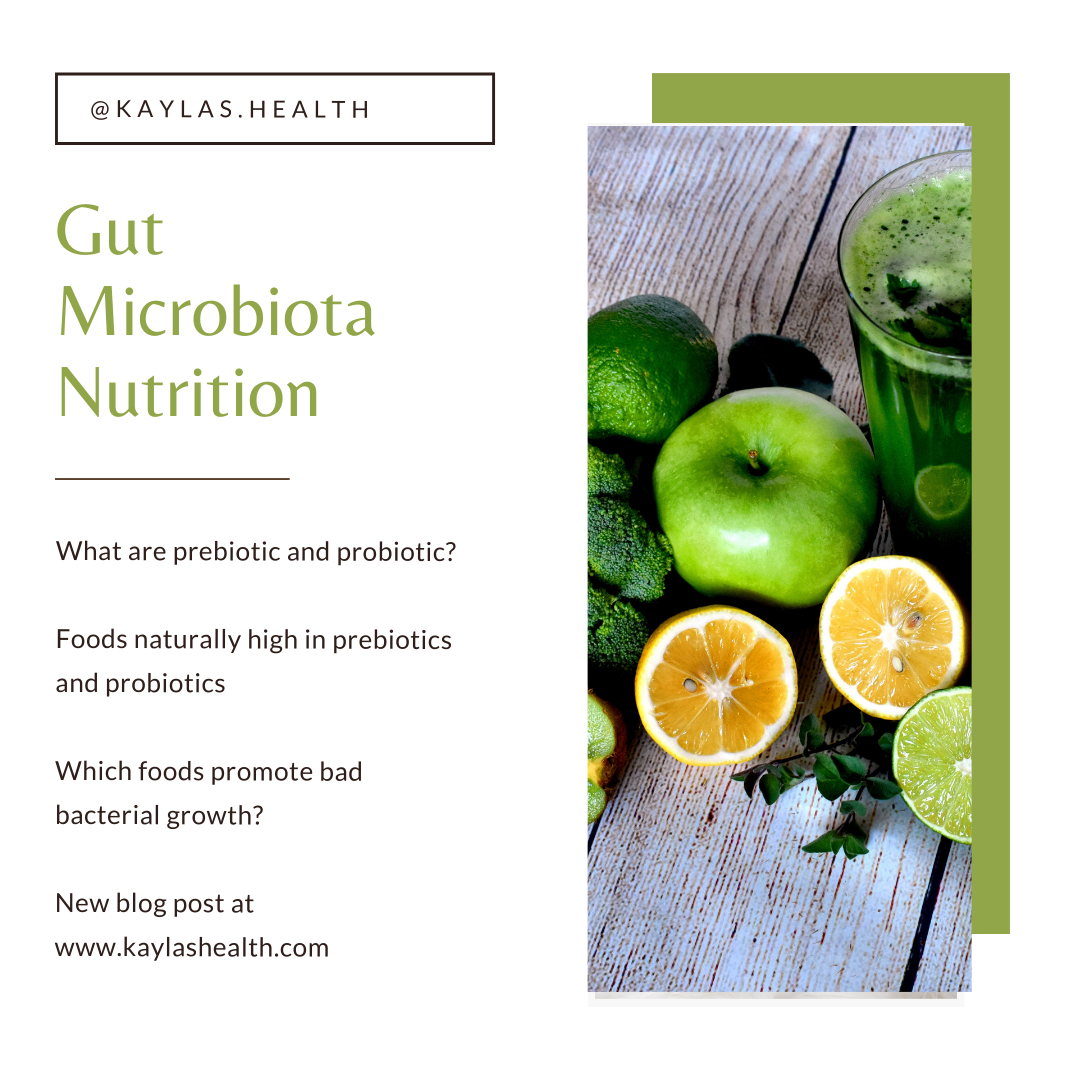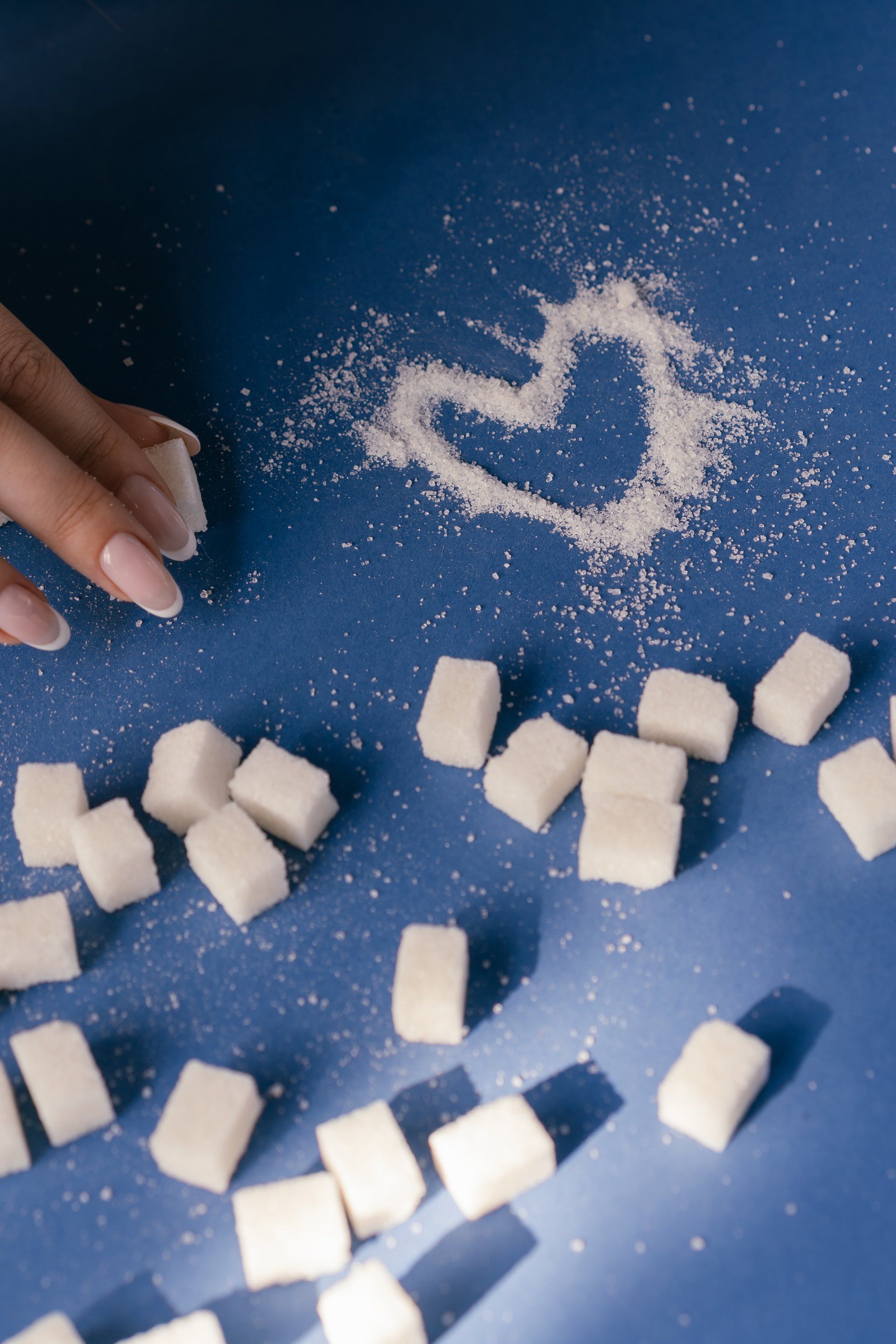Gut Microbiota Nutrition
Kayla Castle • July 7, 2021
Nutrition and lifestyle have a crucial impact on the gut microbiota. Striving for a diverse intestinal bacterial population is key for a healthy gut.

Probiotics vs Prebiotics
Probiotics and Prebiotics work to support healthy bacteria, supports the body ability to fight off bad bacteria. Prebiotics differ as they are not digested in the upper GI tract and promote good bacteria growth. Interestingly prebiotics is also associated with joint health and increased calcium absorption. Having a positive impact on both osteoarthritis and knee pain. On the other hand, probiotics work to maintain healthy gut flora bacteria balanced. Prebiotic rich foods:
whole grains, garlic, onion, bananas, asparagus, leeks, beans and artichokes.
Probiotic rich foods: kefir, yogurt, sauerkraut, tempeh, miso, sourdough and kombucha.
Foods that promote bad bacteria growth
Consuming high amounts of meat, especially red meat and excess refined carbohydrates negatively impacts the gut microbiota. High sugar and carbohydrate consumption negatively impact the gut by increasing fungus risk, such as Candida.
1. Hills R, Pontefract B, Mischcon H, Black C, Sutton S, Theberge C. Gut Microbe: Profound Implications for Diet and Disease. Nutrients. 11(7): 1613.

You know when you eat something sweet and then later in the day you start feeling sluggish and tired? That sugar crash feeling is from a sharp rise in blood sugar levels followed by a decline. Having consistent blood sugar levels provides us with a consistent energy boost. By structuring our meals in a balanced pattern, you will be less likely to experience a “sugar crash”.





































































































